Plastic ingestion widespread in Welsh seabird, study suggests

A study of an internationally important breeding population of a seabird – the Manx shearwater – revealed that almost three-quarters had ingested plastic.
Researchers examined the stomach and gut contents of 34 adult and fledgling birds which had been found dead on Skomer Island in Wales.
The team, from UWE Bristol, Nottingham Trent University, the University of Gloucestershire, Bristol Zoological Society and the Wildlife Trust of South and West Wales, found that nine of the 12 fledglings (75%) had ingested at least one piece of plastic, along with 15 of 22 adult birds (68%).
Together the 34 birds had swallowed more than 70 individual pieces, all smaller than 5mm.
Over half of the world’s Manx shearwaters – approximately 440,000 pairs – breed on the Wildlife Trust of South and West Wales’ neighbouring islands of Skomer and Skokholm.
Shearwater chicks remain in their burrows for up to 70 days after hatching, and are consuming plastics along with fish and squid food brought back to the nest burrow and regurgitated by adults.
Adults were found to contain larger plastics than fledglings.
Clear and yellow plastics were most commonly ingested by adults, which the researchers suggest may have been mistaken for prey.
Plastic debris from fishing equipment and river litter is increasingly abundant in the marine environment and seabirds are among the most impacted marine vertebrates.
‘Procellariiformes’ – the order of seabirds which includes shearwaters and their larger cousin the albatross – are mostly surface-feeders and may be particularly susceptible to ingestion of floating plastic.
The researchers argue that the Manx shearwaters may not necessarily have ingested the plastics near to Skomer Island as they forage in the seas of Wales, Ireland, England and North-West Scotland.
They also spend the non-breeding season in the south Atlantic off the coast of Argentina and Uruguay, and so may have ingested plastics on their trans-Atlantic journey.
Manx shearwater prey may ingest microplastics, so indirect plastic consumption is also possible, the researchers say.
While causes of death for the birds found included predation, building collision and starvation, they were mostly unknown, so mortality due to plastic-related causes such as toxicity, or internal wounds, may remain undetected, it is reported.
Shanice Arkless was a master’s student at UWE Bristol during the study and was supported by conservation science lecturer Dr Mark Abrahams. Shanice, who helped to collect data on fledglings, said: “With increasing amounts of leaked plastic entering the ocean at alarming rates, and evidence of plastic consumption in the gut of young birds, it is imperative to work to protect both adults and fledglings from plastic pollution.”
Dr Louise Gentle, a wildlife conservation researcher in Nottingham Trent University’s School of Animal, Rural and Environmental Sciences, said: “The majority of birds had at least one plastic piece in their gastrointestinal tract. Our study shows that Manx shearwaters on Skomer Island are vulnerable to plastic ingestion and that the adults are likely to pass plastic to their chicks.
“We even found glitter in one of the birds. It was shocking to see so much plastic in the chicks within the first few weeks of their lives.”
Clare Alley, an NTU wildlife conservation graduate who collected data for the study during a placement year on Skomer, said: “This study shows that plastic ingestion is a frequent occurrence for Manx shearwaters that breed on Skomer Island. Although the ingestion rates are not as high as areas of the Pacific Ocean, where the risk is much greater; the potential impact on these birds warrants further study.”
Dr Matt Wood, Senior Lecturer in Biology from the University of Gloucestershire who coordinated the study, said: “We need to know more about what’s happening here. While it’s small amounts and nothing like the quantities that some seabirds can carry, where plastic pollution is worse – such as the Pacific – it doesn’t mean it’s having no effect.”
Lisa Morgan, Head of Islands and Marine at the Wildlife Trust of South and West Wales, which was involved in the study, said: “Skomer is world famous for its seabirds, with 800,000 individuals, including Manx shearwaters, puffins and kittiwakes coming to breed every year. Sadly, the finding of plastics ingested by Skomer’s Manx shearwaters is not surprising. It is well known that seabirds act as barometers for the health of our seas.
“Microplastics within these iconic birds reflects the global plastic crisis currently impacting our precious marine life. It is concerning, not only for the welfare of the seabirds themselves, but for the entire marine ecosystem on which they depend.
“Scientists estimate 99% of seabirds could have plastic in their stomachs by 2050 if we continue in the same direction. It is vital that we all reduce the amount of plastic we use in our daily lives and call on the Government to get drastic on tackling plastic.”
The study is published in the journal Seabird.
Related news

15 December 2025
UWE Bristol rises eleven places in People & Planet University League
UWE Bristol has risen to 14th in the People & Planet University League (UK), a jump of eleven places.

12 December 2025
UWE Bristol’s environmentally conscious and student-focused accommodation wins three awards
Purdown View, the world's largest certified Passivhaus student accommodation development, has been recognised at Property Week Student Accommodation Awards.

20 November 2025
UWE Bristol ranked among top 12 per cent of universities globally for sustainability
UWE Bristol has climbed over 400 places in the QS World University Sustainability Rankings 2026, which evaluates universities on a range of environmental and social impacts.

06 November 2025
UWE Bristol welcomes West of England Mayor for annual Green Week
Helen Godwin, Mayor of the West of England, visited UWE Bristol during its annual Green Week to see the sustainability-driven research, innovation and skills initiatives that are helping to power the growth of the region’s green economy.
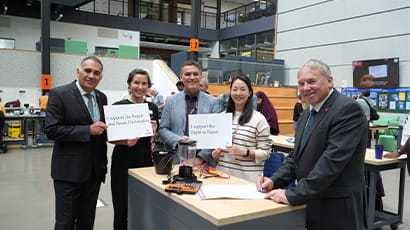
16 October 2025
UWE Bristol signs Repair and Reuse Declaration in commitment to sustainable initiatives
UWE Bristol is the first UK university to sign the Repair and Reuse Declaration as a whole institution, a call to legislators and decision makers to tackle climate change through greater repair and reuse support.

15 October 2025
UK food needs radical transformation on scale not seen since Second World War, new report finds
A new report from the Agri-Food for Net Zero Network+ finds urgent action on food is needed if the UK is to reboot its flagging economy, save the NHS billions, ensure national food security, and meet climate commitments.
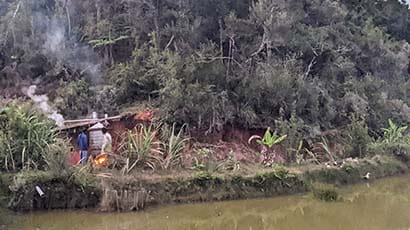
24 September 2025
UWE Bristol to help protect threatened forest in Madagascar in £800k project
UWE Bristol is a partner in a groundbreaking project awarded almost £800,000 in funding to protect one of Madagascar’s most precious and threatened forests.
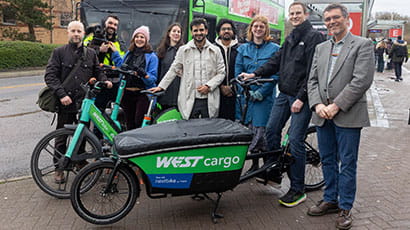
24 February 2025
WESTbusStop+ makes sustainable travel more convenient
A new WESTbusStop+ bringing together buses and other ways to travel has been officially opened at UWE Bristol’s Frenchay campus.
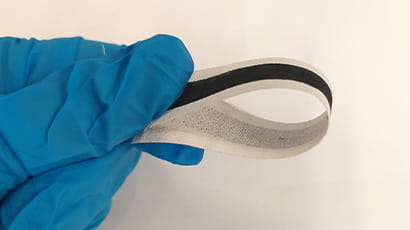
03 January 2025
Big leap forward for environmentally friendly ‘e-textiles’ technology
Research led by UWE Bristol and the University of Southampton has shown wearable electronic textiles (e-textiles) can be both sustainable and biodegradable.

28 November 2024
Work of UWE Bristol academics features in Government report on air quality measurement
Two UWE Bristol academics have made contributions to an influential Government report on the measurement of air pollution.
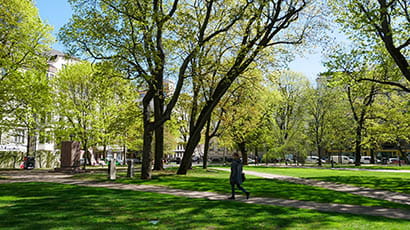
27 November 2024
Traffic noise reduces the stress-relieving benefits of listening to nature, study finds
Road traffic noise reduces the wellbeing benefits associated with spending time listening to nature, researchers have discovered.
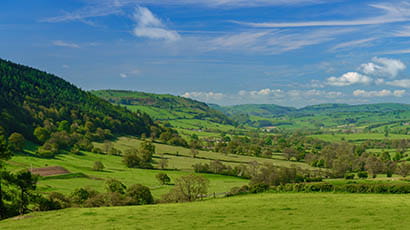
15 November 2024
Grasslands project led by UWE Bristol academic to support UK’s bid for net zero emissions
A UWE Bristol researcher will lead a £4.7 million project focused on the management of UK’s grasslands aimed at supporting efforts to achieve net zero emissions by 2050.






